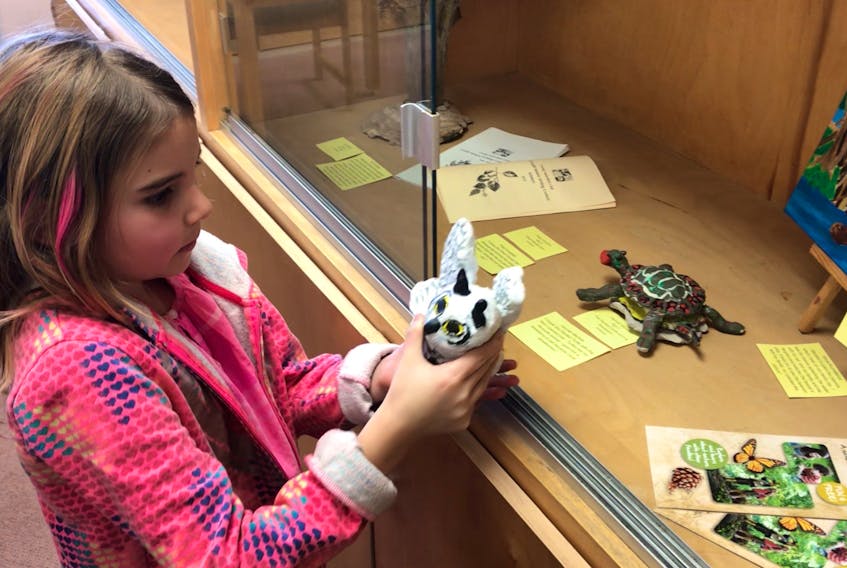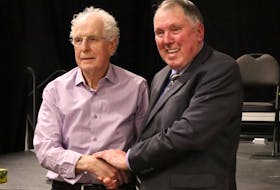Children enjoyed a chance to reconnect with their wild side Saturday when the Young Naturalists Club of Nova Scotia paid a visit to the New Glasgow Public Library.
A slow trickle of children enjoyed arts and crafts and a display of nature and animal-themed artwork, as well as a little display of photos, acorns, a large horn and seashells, among other items.
“Being in nature is really helpful to child development and mental health, plus we find that kids these days know lots of logos and animals from other countries like the rainforest or Africa, but they don’t know some of even the common species in their own back yard,” said club co-ordinator Robin Musselman.
However, there is plenty of local wildlife to be found in Pictou County, such as a colony of double-crested cormorant birds who nest on the old Pictou causeway.
Another bird that may be found in Nova Scotia is the great horned owl, a figurine of which was sculpted by eight-year-old Freja Campbell.
While the young artist did not want to talk, her mother told The News that they had travelled from Cape Breton to see Campbell’s sculpture on display in New Glasgow.
“We have chapters in communities across the province and right now we don’t have one operating in [the] Pictou area,” said Musselman.
The club offers programs for children aged six to 12. The chapter that used to exist in Pictou County can only be revived with adult volunteer chapter leaders.
Activities include everything from searching insects to stargazing, with adult naturalists and scientists teaching children about natural history.
Club members can also make field trips to places like salt marshes where they can learn about how different ecosystems work.
“Hopefully they’ll learn to value that and appreciate it and develop strong conservation ethics in order to protect the species and the spaces where they live when they grow up,” said Musselman.









